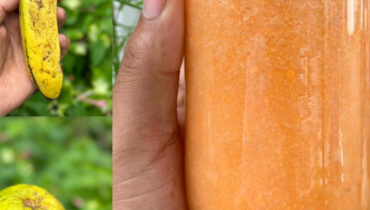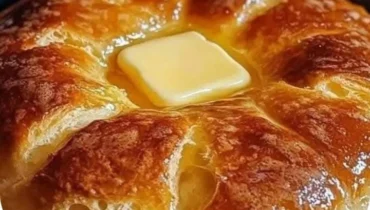📌 This essential oil will make flies flee your home instantly this summer

Posted 14 July 2025 by: Admin
Essential Oils Vs. Flies: The Natural Science Behind The Repellent Power
Summer’s most persistent uninvited guests have met their match in nature’s own chemical arsenal. When flies detect certain aromatic plant compounds, their instinctive response is immediate: retreat.
The secret lies in powerful molecules naturally produced by specific plants. Geraniol, linalol, and other volatile compounds create an olfactory battlefield that flies simply cannot tolerate. These molecules don’t kill insects—they wage psychological warfare through scent.
« These are molecules like geraniol or linalol contained in essential oils that act as insectifuges, creating a hostile olfactory environment », explains Sophie Pihan, naturopath and communicator at the French Federation of Naturopathy. Unlike chemical insecticides that eliminate pests, essential oils function as natural behavioral modifiers.
This biological response stems from millions of years of evolution. Plants developed these potent aromatic defenses to protect themselves from insect damage. When concentrated into essential oils, these same compounds become our allies in the domestic battlefield.
The effectiveness isn’t just anecdotal—it’s measurable. Certain essential oils demonstrate rapid action against flies, mosquitoes, and other flying invaders. The aromatic intensity creates an invisible barrier that insects instinctively avoid.
What makes this approach particularly appealing is its dual nature: while humans often find these scents pleasant and refreshing, insects experience them as overwhelming deterrents. This natural antagonism transforms everyday spaces into no-fly zones without compromising air quality or safety.
The science is clear—essential oils don’t just mask odors that attract flies; they actively repel them.
The Top 4 Essential Oil Champions Against Summer Fly Invasions
Armed with this scientific understanding, four essential oils emerge as the ultimate fly-fighting powerhouses. Each brings unique molecular weapons to the battle.
Tropical basil oil strikes first and fastest. Whether diffused or diluted in a spray bottle, it delivers rapid-fire effectiveness against both flies and mosquitoes. The fresh, herbaceous scent that delights humans becomes an immediate deterrent for buzzing intruders.
True lavender oil plays a fascinating dual role. While renowned for calming human nerves, it has the opposite effect on insects. « In sachets, bouquets, or diffusion, it also protects against moths and mosquitoes », notes Sophie Pihan. This versatile warrior transforms relaxation spaces into insect-free sanctuaries.
Rose geranium oil demonstrates impressive range. Place cotton balls soaked in this aromatic solution in room corners, and flies retreat. Its effectiveness extends beyond common houseflies—wasps also flee from its potent floral assault.
Java citronella reigns supreme in molecular firepower. Rich in geraniol, this essential oil becomes even more formidable when combined with allies like peppermint or lemon eucalyptus. The synergistic effect creates an olfactory fortress that insects cannot penetrate.
Each oil offers distinct advantages: basil for immediate action, lavender for multi-purpose protection, geranium for broad-spectrum repelling, and citronella for maximum potency. Together, they form nature’s elite squadron against summer’s most persistent invaders.
The choice depends on your specific needs and scent preferences—but all four deliver proven results.
Proven Application Methods: From Diffusion To Decorative Solutions
Proven results require precise application. Transform these powerful oils into practical defense systems with four simple methods.
Electric diffuser technique delivers maximum atmospheric coverage. A few drops suffice to perfume entire rooms while maintaining constant fly deterrence. The gentle vapor creates an invisible barrier that insects refuse to cross.
For targeted protection, the spray bottle method provides surgical precision. Mix 1 drop essential oil per 10 drops water—this exact ratio ensures effectiveness without waste. Spray on curtains, window frames, and kitchen surfaces where flies typically gather.
Households with children or pets benefit from hydrolat alternatives. These gentler flower waters offer similar repelling properties with reduced intensity. Perfect for sensitive environments where full-strength oils might prove overwhelming.
Creative decorative solutions blend function with aesthetics. Cotton balls soaked in geranium oil tucked into decorative bowls become elegant insect barriers. Fresh basil leaves scattered near windows provide natural protection with garden-fresh appeal. Dried lavender sachets transform closets into moth-free zones.
For immediate emergency action, Sophie Pihan recommends an old-fashioned power move: « Stud cloves into a citrus fruit or onion to reinforce the repelling effect. The scent is strong, but flies flee immediately ». This traditional technique delivers instant results when invasions reach crisis levels.
Each method adapts to different spaces and situations. Diffusion for whole-room protection, spraying for precise targeting, hydrolats for gentle households, and decorative options for style-conscious homes. The key lies in matching technique to need.
Essential Safety Precautions: Natural Doesn’t Mean Risk-Free
Matching technique to need extends beyond application methods—it demands understanding safety boundaries. Natural origins don’t eliminate potential risks, especially for vulnerable populations.
Strict contraindications apply to children under 6, pregnant or nursing women, epileptic individuals, and asthmatic patients. These groups face heightened sensitivity to concentrated plant compounds. Even gentle diffusion can trigger unexpected reactions.
Proper diffusion timing prevents overexposure. Follow device recommendations and limit sessions to brief intervals—never continuous operation. Concentrated aromatics can overwhelm respiratory systems when exposure becomes prolonged.
Ingestion remains absolutely forbidden without medical supervision. These oils pack concentrated potency that can cause severe internal reactions. Similarly, direct skin application, particularly on pets, creates unnecessary risks. Animals process essential oils differently than humans, making even diluted applications potentially dangerous.
Storage security protects household members. Keep all bottles sealed, labeled, and beyond children’s reach. Essential oils maintain potency for years when properly stored, making secure placement crucial.
For enhanced cleaning power, combine safety with effectiveness. White vinegar enhanced with mint or eucalyptus oil drops creates a natural surface cleaner that simultaneously repels flies. This dual-purpose solution maintains household hygiene while providing ongoing insect protection.
Responsible usage amplifies benefits while minimizing risks. These precautions don’t limit effectiveness—they ensure sustainable, safe fly control that protects every household member. Natural power demands natural wisdom in application.




















